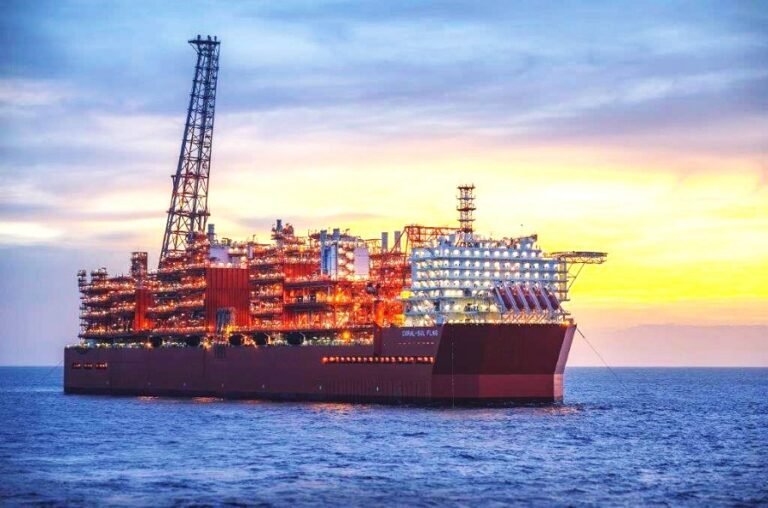Mozambique Advances LNG Projects to Strengthen Energy Position
With the green light for a multibillion-dollar floating liquefied natural gas (FLNG) project, Mozambique’s government is intent on augmenting gas production and strengthening the African country’s LNG position, given the role natural gas is expected to play in the global energy transition story.
According to the National Petroleum Institute (INP – Instituto Nacional de Petróleo), the Council of Ministers of Mozambique gave its blessing for the development plan of Eni’s Coral Norte/North FLNG project, enabling the exploration of natural gas resources from the Coral Eocene 441 deposit in Area 4 concession, which entails the Coral Sul/South FLNG facility, the now approved second FLNG development, and the Rovuma LNG onshore facilities.
The final investment decision (FID) for Rovuma, originally planned for 2025, was bumped to 2026. The Coral Norte FLNG is anticipated to produce 3.5 million metric tons of LNG per annum (mtpa), with start-up slated for 2028. The facilities will be a replica of the Coral Sul FLNG model for deepwater production, which has already exported 100 FLNG cargoes to the world market.
“This advancement reflects the country’s continued efforts to maximize natural gas production and strengthen its position as a regional leader in the production of Liquefied Natural Gas (LNG), meet the growing global demand for LNG, as well as seize the window of opportunity, given that natural gas has been elected as the transition energy,” highlighted INP.
The Eni-operated Coral South development, currently in operation, has a capacity of 3.5 mtpa of LNG and is said to represent the first facility of its kind in Africa. While the 3.5-mtpa Coral North development is expected to liquefy natural gas for export, the 18-mtpa Rovuma onshore LNG development has a modular, electric-drive design anticipated to curb the carbon intensity of the LNG it will produce compared to industry benchmarks.
The Coral Norte FLNG project’s estimated investments amount to $7.2 billion. Based on the approved development plan, the African country’s government will collect $23 billion in revenues, taxes, and other contributions over 25 years of operation.
INP notes that the project also foresees the provision of natural gas to the domestic market and condensate produced for the development of industrialization projects in the country, to be monetized by the National Hydrocarbons Company (ENH), as well as the hiring of local workers and the implementation of a succession plan to increase the qualifications of the Mozambican workforce in the sector.
The Area 4 block in Mozambique’s Rovuma supergiant gas basin is estimated to contain approximately 85 trillion gross cubic feet of natural gas. This block is operated by Mozambique Rovuma Venture (MRV), a consortium that includes Eni, ExxonMobil, and China National Petroleum Corporation (CNPC), which holds a 70% stake, ENH, Galp, and KOGAS, each with a 10% stake.
Following the acquisition of Galp’s 10% stake in the Area 4 concession, ADNOC gained access to the Rovuma basin. MRV inked front-end engineering design (FEED) contracts last year, enabling potential contractors to compete for the engineering, procurement, and construction (EPC) of the Rovuma LNG project.
While one contract for Rovuma LNG Phase 1 went to JGC Holdings Corporation and Technip Energies, another was given to a consortium comprising McDermott, Saipem, and CPECC.
Nazário Bangalane, INP’s CEO, sees the approval of the Coral Norte FLNG project as a milestone in Mozambique’s energy strategy and a significant advancement in the sustainable exploitation of natural resources, ensuring that Mozambique will fortify its presence in energy markets.

